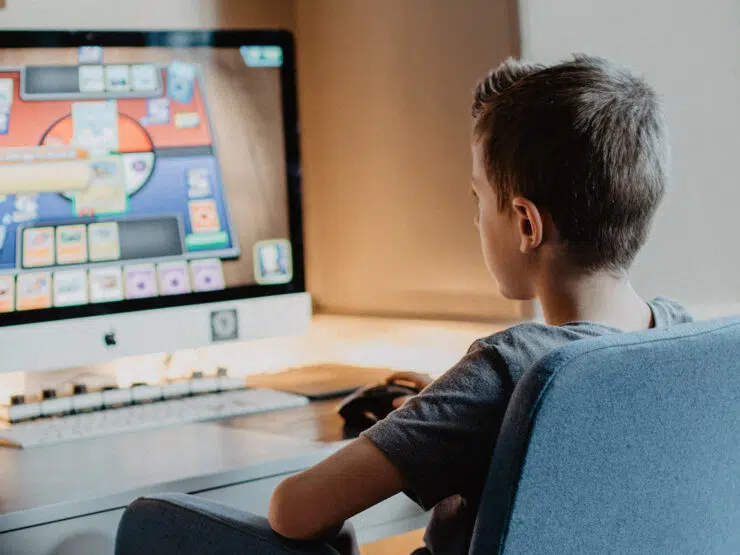

Over the past several months of stay at home orders around the country, people of all ages were finding themselves bored. Kids in particular had more time to spend on what so many of them love to do – play video games, watch TV, and communicate via their phones. But all that screen time, coupled with even more in the case of virtual classes via video conference sites like Zoom, has skyrocketed. And it’s not good news for the eyes.
The American Academy of Pediatrics recommends parents put a limit on entertainment media, but this is often easier said than done. Despite those recommendations, though, children between the ages of eight and 18 average nearly eight hours of screen per day. And it’s not just kids. The average adult spends more than 11 hours per day behind a screen, whether that’s a computer at work, the TV at home, or the phone in between.
Effects of Too Much Screen Time
It’s no secret that too much screen time is harmful to kids. Here’s what too much of it can lead to:
- Vision: Too much screen time has been known to lead to dry eye and digital eye strain.
- Obesity: Spending too much time being sedentary, such as playing video games or watching TV, is a risk factor for becoming overweight and obese.
- Sleep problems: While kids may watch TV or play on their phones to wind down before they go to bed, doing this before bed can backfire. That’s because the blue light that emits from screens of all kinds can interfere with your child’s sleep cycle within the brain, leading to insomnia. This goes for adults too!
- Behavior problems: Elementary school kids who view TV or use the computer for more than two hours a day are more likely to suffer from social, emotional and attention problems in school.
- Educational problems: Elementary school children who have TVs in their bedrooms tend not to fare as well on academic testing.
- Violence: Exposure to violent movies, TV shows, music, and video games can cause desensitization in children to the reality of such violence. As a result, they may eventually turn to violence as a way to solve problems, imitating what they have seen on TV.
- Depression: Too much screen time can impact your child’s development and mental health. A recent study suggests that viewing digital devices can increase a child’s risk for development of mental health problems, such as depression.
Establish Family Rules with Electronics – in Advance
You’re not going to get very far telling your child to switch off the gaming system when they’re already in front of it. Instead, set some ground rules as family at a time when everyone can sit uninterrupted. This way, you can set healthy limits on the use of electronics for your child’s sake – and yours.
Here are a few sample rules you may want to establish to prevent too much screen time:
- No digital devices during family meal time.
- No screen time while in the car.
- No screen time allowed in bedrooms.
- No electronics use during family nights.
Contact Simon Eye for All of Your Eye Health Needs
If you are concerned about how too much screen time could be harming your child’s vision, contact us for a pediatric eye care appointment at 302-239-1933.
Concerned about the effects of screen time?
Make an appointment with Simon Eye.


